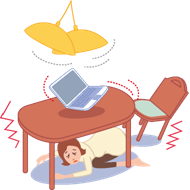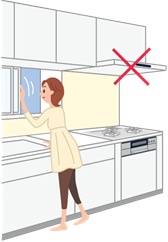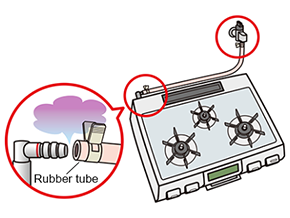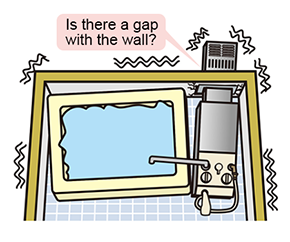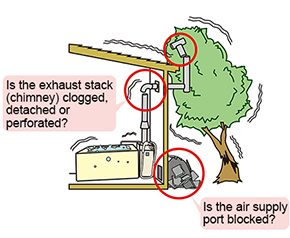4. After the earthquake, typhoon, or other natural disaster has subsided, make sure it is safe before using gas or electricity.
Before using gas, check the following:
- Does it smell like gas around the gas appliance?
- Is there any abnormality to the gas appliance such as deformation or damage?
- Is there any abnormality to indoor or outdoor air supply/exhaust equipment such as a chimney?
(Check visually that there is no disconnection, dent, hole, or blockage in the air supply port.)
- Is the gas connection properly connected?
(Check visually that the connection has not come off.)
*If you do find an abnormality, please contact the store where you purchased the appliance, the manufacturer, or the gas company for inspection and repair as there is the risk of carbon monoxide poisoning, fire, or other accident.
*If you are using a gas appliance and your eyes begin to hurt, you feel sick, or you smell an unpleasant odor, stop using it immediately and arrange for repair.
*If an appliance is flooded due to water damage, please refrain from using it and contact the store where you purchased it, the manufacturer, or the gas company to request inspection.
Gas can be used by opening the main tap.
If no gas comes out, this means that the gas meter safety feature has been activated. Check to see if the light is blinking and follow the reset procedure.
» How to Reset Your Gas Meter
Watch this video that summarizes the above.


